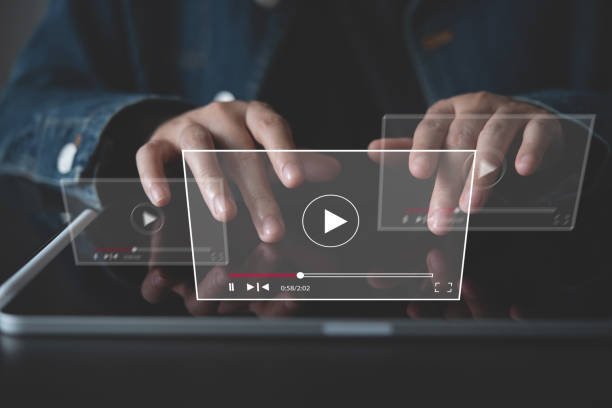The digital landscape has seen significant transformations in how we consume media, with YouTube emerging as the go-to platform for video content. From music videos and podcasts to tutorials and vlogs, YouTube hosts an extensive array of content that caters to virtually every interest. However, as YouTube’s popularity grew, so did the demand for tools. And services that convert its content into MP3 files, a format widely used for audio playback. This demand has led to the proliferation of “YouTube to MP3” converters, tools that allow users to extract audio from YouTube videos. But what exactly drives this trend, and what are the legal, ethical, and practical implications of using such converters?
The Appeal of YouTube to MP3 Converters
At its core, the popularity of YouTube to MP3 converters stems from convenience and accessibility. Users often seek to convert YouTube videos to MP3 for various reasons, including:
- Offline Access: One of the primary motivations is to enjoy audio content offline. Whether it’s a favorite song, an educational podcast, or a motivational speech. Converting a video to MP3 allows users to listen without an internet connection.
- Portability: MP3 files can be easily transferred to various devices, from smartphones and tablets to MP3 players and car stereos. This portability makes it easy for users to take their favorite audio content wherever they go.
- Data Savings: Streaming content on YouTube can consume a significant amount of data. By converting videos to MP3, users can save on data costs, especially when repeatedly listening to the same content.
The Legal and Ethical Concerns
While YouTube to MP3 converters offer undeniable convenience, they also raise significant legal and ethical concerns. YouTube’s terms of service explicitly prohibit the downloading or copying of videos without permission. Except through YouTube’s own download feature, which is available for selected content and is meant for offline viewing within the YouTube app.
- Copyright Infringement: The most pressing issue is copyright violation. Many YouTube videos, particularly music videos, are protected by copyright laws. Converting these videos to MP3 without the creator’s permission constitutes unauthorized reproduction. Which can lead to legal repercussions for both the user and the service provider.
- Impact on Creators: YouTube content creators often rely on ad revenue generated from views and engagement. By converting and downloading their content, users bypass the platform’s monetization mechanisms. Potentially reducing the income creators earn from their work. This undermines the financial sustainability of content creation.
- Ethical Considerations: Beyond the legal implications, there are ethical concerns about respecting the rights of creators. Content creators invest time, effort, and resources into producing videos, and converting their work into MP3 files. Without compensation can be seen as a disregard for their intellectual property rights.
The Role of Legitimate Alternatives
To address the issues surrounding YouTube to MP3 converters, it’s essential to consider the legitimate alternatives available to users. Various platforms and services offer legal ways to access and download music and audio content:
- Music Streaming Services: Platforms like Spotify, Apple Music, and Amazon Music provide extensive music libraries with offline listening options for a subscription fee. These services compensate artists and creators, ensuring that they are paid for their work.
- YouTube Premium: YouTube offers a premium subscription service that allows users to download videos for offline viewing. While this feature doesn’t convert videos to MP3, it does provide a legal way to access content without an internet connection.
- Podcast Platforms: For those interested in educational or talk-based content, podcast platforms like Apple Podcasts, Google Podcasts, and Spotify offer a vast selection of downloadable content. Many creators also upload their podcasts to YouTube, giving users multiple ways to access the same material.
- Digital Music Stores: Services like iTunes and Amazon allow users to purchase and download individual tracks or albums, supporting artists directly.
The Future of YouTube to MP3 Converters
The ongoing debate around YouTube to MP3 converters reflects broader discussions about copyright in the digital age. As technology evolves, so too do the ways in which content is consumed and shared. It’s likely that we will see continued efforts from both content creators and platforms. Like YouTube to protect intellectual property rights while also meeting consumer demand for flexibility and convenience.
- Technological Countermeasures: YouTube and other platforms may introduce more sophisticated measures to prevent unauthorized downloads and conversions. This could include stronger encryption methods or more aggressive takedown policies for services that facilitate copyright infringement.
- Legal Action: There have been instances where copyright holders and industry groups have pursued legal action against YouTube to MP3 converter sites. Such actions may become more frequent and far-reaching as copyright holders seek to protect their revenue streams.
- Consumer Education: Raising awareness about the legal and ethical implications of using YouTube to MP3 converters is essential. By educating users about the impact of their actions, there may be a shift towards more responsible consumption of online content.
Conclusion
The phenomenon of YouTubetoMP3 converters is a testament to the evolving nature of media consumption in the digital age. While these tools offer convenience and versatility, they also raise significant legal and ethical concerns. As the debate continues, it is crucial for users to consider the implications of their choices and explore legitimate alternatives that respect the rights of content creators. By doing so, we can foster a digital ecosystem that balances the needs of consumers with the rights of creators. Ensuring that everyone benefits from the vast array of content available online.




